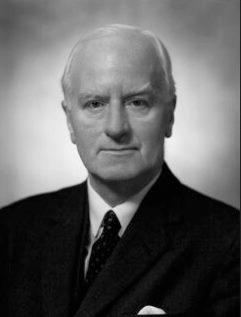Ernest Bullock facts for kids
Quick facts for kids
Sir
Ernest Bullock
|
|
|---|---|

Bullock in 1960
|
|
| Background information | |
| Born | 15 September 1890 Wigan, England |
| Died | 24 May 1979 (aged 88) |
| Occupation(s) | |
Sir Ernest Bullock (1890–1979) was a talented English musician. He was an organist, a composer, and a teacher. He played the organ at two very important places. First, he was the organist at Exeter Cathedral from 1917 to 1928. After that, he moved to Westminster Abbey, serving from 1928 to 1941.
At Westminster Abbey, he helped create the music for a huge event. This was the coronation of King George VI in 1937. During World War II, the Abbey's choir had to stop performing. Ernest Bullock then started a new career in music education.
He became a music professor at the University of Glasgow. He also led the Royal Scottish Academy of Music and Drama. Later, from 1953 to 1960, he was the director of the Royal College of Music in London. As a composer, Ernest Bullock mainly wrote music for churches. This included many anthems, motets, and organ pieces.
Contents
Early Life and Musical Start
Ernest Bullock was born on September 15, 1890, in Wigan, England. He was the youngest of six children. When he was a little boy, he joined the choir at Wigan parish church. The organist there was Edward Bairstow.
Sadly, Ernest's parents passed away when he was still young. Edward Bairstow took care of his musical training and education. He taught Ernest and sent him to Wigan Grammar School.
Moving to Leeds
In 1906, Edward Bairstow got a new job. He became the organist at Leeds parish church. He took Ernest with him to live in his home. Ernest became Bairstow's assistant organist at the church. He also played the organ at other local churches. These included St Mary, Micklefield (from 1908), and St John the Baptist Church, Adel (1910–12).
Ernest Bullock studied music at Durham University. He earned his Bachelor of Music degree in 1908. He then became a Doctor of Music in 1914. In 1909, he also became a fellow of the Royal College of Organists. This showed he was a very skilled organist.
Career as a Cathedral Organist
From 1912 to 1915, Ernest Bullock worked at Manchester Cathedral. He was the assistant organist to Sydney Nicholson. Then, during World War I, he joined the army. He served as a captain until 1919.
After the war, he briefly worked at St Michael's College, Tenbury. Then, in 1919, he became the organist and choirmaster at Exeter Cathedral. He stayed there until 1927. Sir Thomas Armstrong, a famous musician, said that Ernest Bullock brought new life to the music there. He was very determined and improved the music in the cathedral and the surrounding area.
In 1919, Ernest Bullock married Margery Newborn. They had two sons and a daughter.
Westminster Abbey Organist
In 1928, Sydney Nicholson, who had been Ernest's boss in Manchester, retired. He was the organist at Westminster Abbey. The job was first offered to Edward Bairstow, Ernest's old teacher. But Bairstow wanted to stay in Yorkshire. So, Ernest Bullock was chosen for the important role at Westminster Abbey.
At the Abbey, Ernest Bullock continued his great work. He made changes to the daily choir services. He also led the music for many important state events. One of the biggest was the coronation of King George VI in 1937. Ernest Bullock composed special fanfares for this event. He also helped direct all the music, working with Sir Adrian Boult. People said the music at this coronation was the best ever heard in the Abbey.
In May 1940, during World War II, parts of Westminster Abbey were bombed. Ernest Bullock's house, which was near the Abbey, was destroyed. He lost all his belongings and papers. The Abbey's music program had to be stopped.
Leading Music Schools
Because the music at the Abbey was reduced, Ernest Bullock left in 1941. He took on two new jobs in Glasgow, Scotland. He became a professor of music at the University of Glasgow. He also became the principal of the Scottish National Academy of Music. This academy later became the Royal Scottish Academy of Music.
Ernest Bullock helped organize and improve these two roles. This led to the growth of these music schools after the war. He made a big difference to Scottish music during his eleven years in Glasgow.
In 1952, Ernest Bullock was chosen to lead the Royal College of Music in London. He used his experience from Glasgow to improve how music teachers were trained. He was known for being good at working with students and professors. He also taught improvisation classes, which were very popular.
Ernest Bullock received several honors for his work. He was made a Commander of the Royal Victorian Order (CVO) in 1937. He was also knighted in 1951, becoming "Sir" Ernest Bullock. In 1955, he received an honorary Doctor of Law degree from Glasgow University. He was also involved with many other music organizations.
Ernest Bullock retired from the Royal College of Music in 1960. He moved to Long Crendon and passed away on May 24, 1979, at the age of 88.
Music Composed by Ernest Bullock
Ernest Bullock is best known for his church music. Some of his famous anthems include "Give us the wings of faith" and "O most merciful." He wrote three evening services, two Te Deums, and two Magnificats. He also composed twenty anthems and motets, and many pieces for the organ.
He also wrote a few part-songs and other vocal pieces that were not for church. His music style was traditional. It was effective for the church services it was written for.
 | Aaron Henry |
 | T. R. M. Howard |
 | Jesse Jackson |

